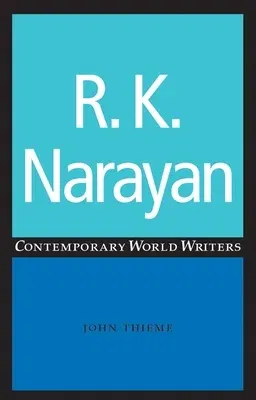John Thieme
(Author)R. K. NarayanPaperback, 1 November 2007

Qty
1
Turbo
Ships in 2 - 3 days
In Stock
Free Delivery
Cash on Delivery
15 Days
Free Returns
Secure Checkout

Part of Series
Contemporary World Writers
Part of Series
Contemporary World Writers Mup
Print Length
264 pages
Language
English
Publisher
Manchester University Press
Date Published
1 Nov 2007
ISBN-10
0719059275
ISBN-13
9780719059278
Description
Product Details
Author:
Book Format:
Paperback
Country of Origin:
GB
Date Published:
1 November 2007
Dimensions:
19.76 x
13.06 x
2.06 cm
Genre:
Indian
ISBN-10:
0719059275
ISBN-13:
9780719059278
Language:
English
Location:
Manchester
Pages:
264
Publisher:
Weight:
285.76 gm